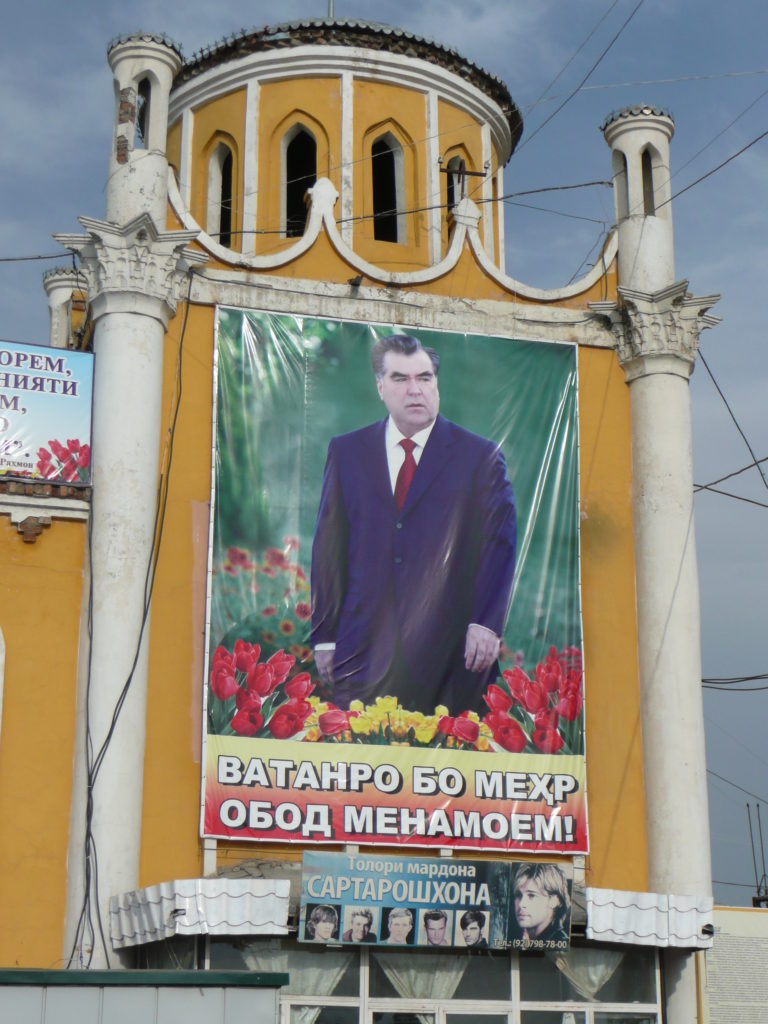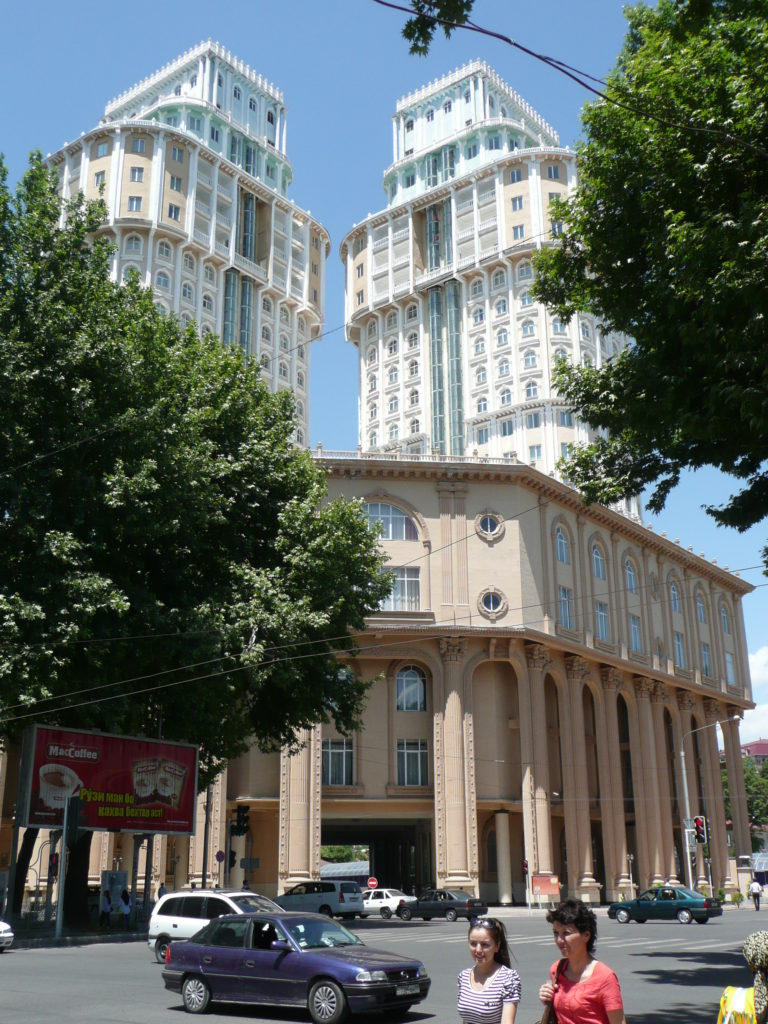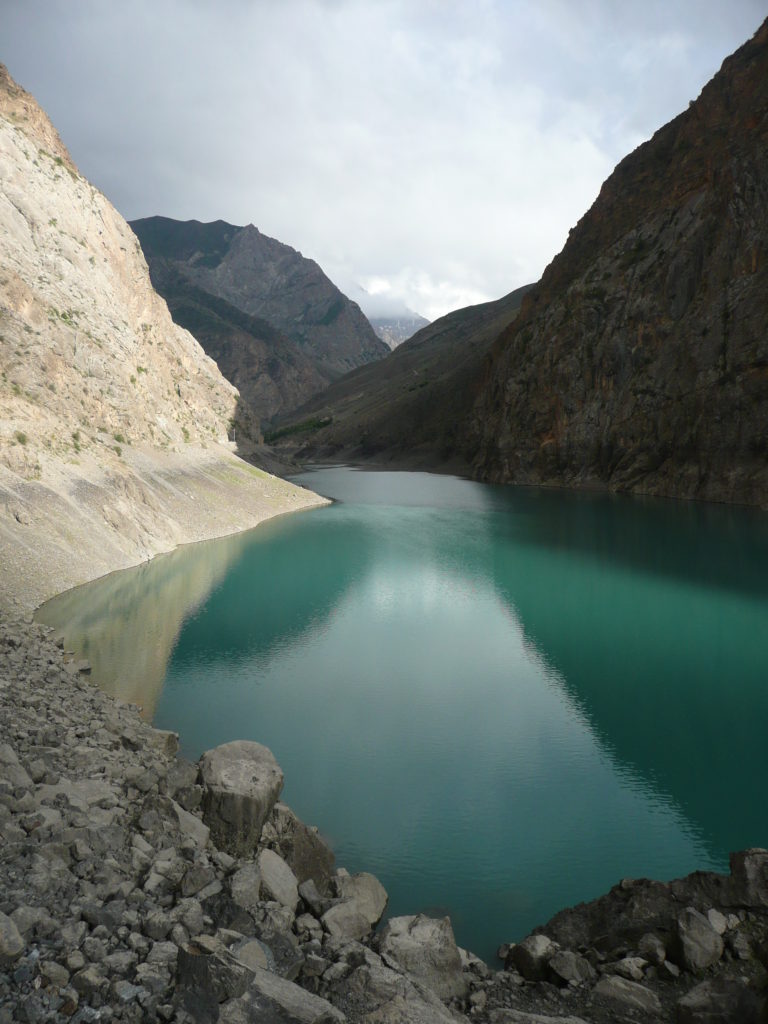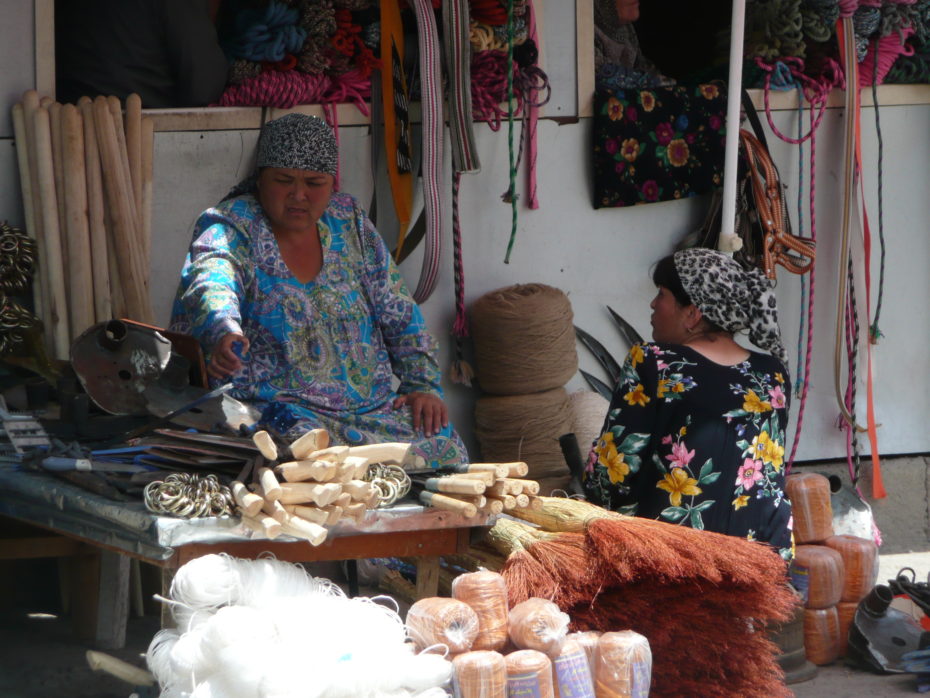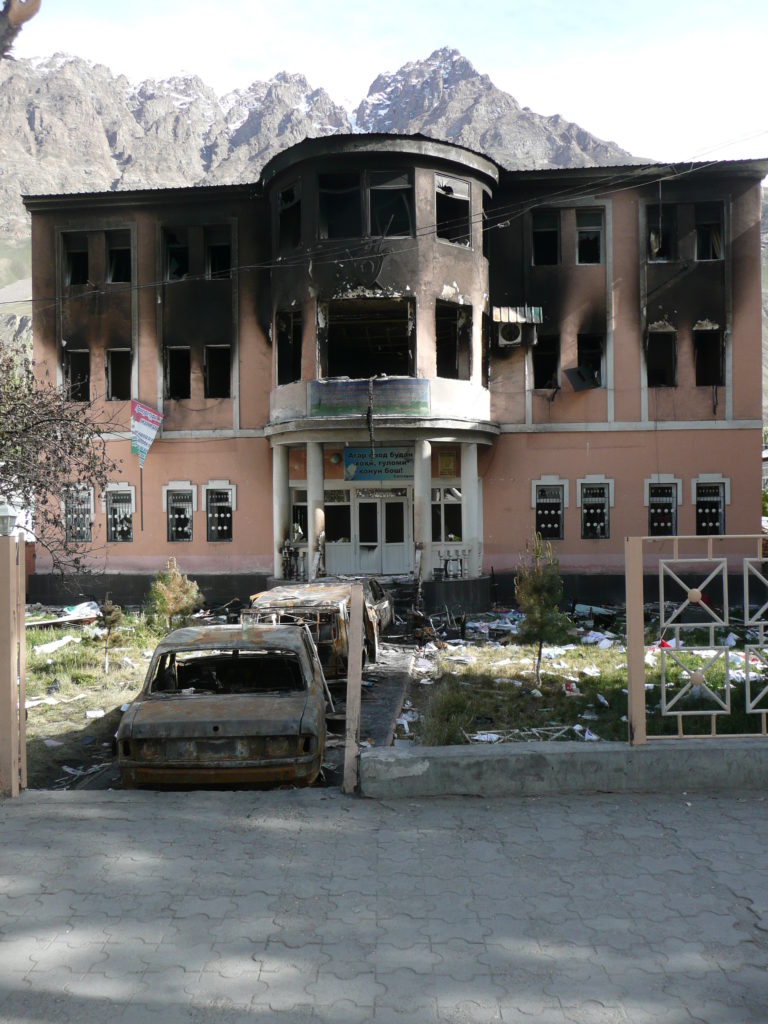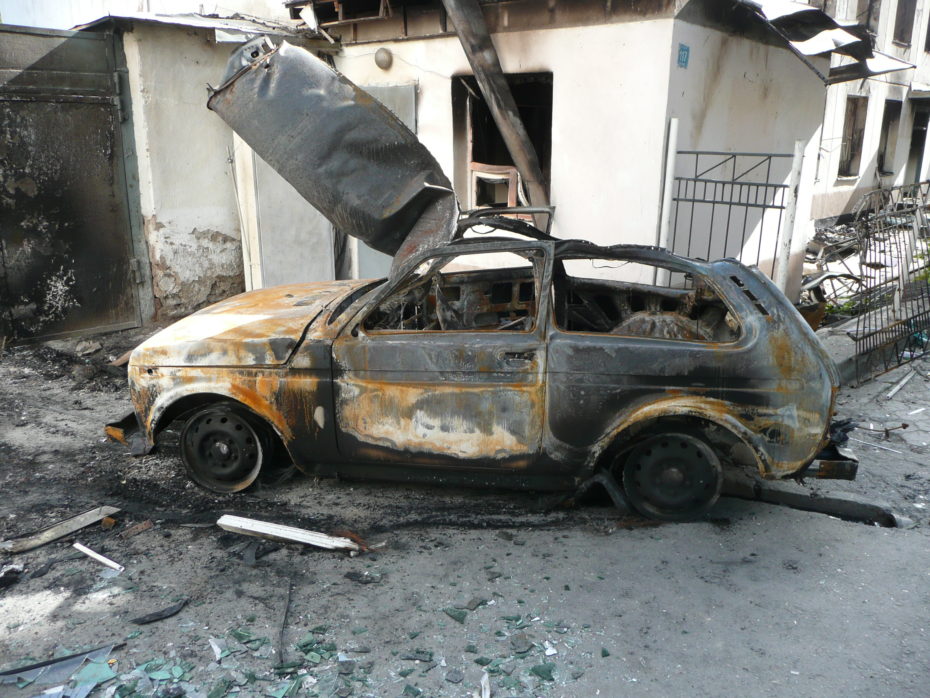Looming over many a street in Tajikistan are large images of brooding president Emomali Rahman, a man suffering the same affliction as short term British prime minister Gordon Brown: the inability to smile with any sincerity. The best he can manage is usually only a hint of an unnerved grin, as if caught off guard by the camera. One can only assume that his publicity department is entirely unaware of the concept of image management or the creative wonders of Photoshop. Admittedly he probably won’t be losing a lot of sleep over the issue, it’s not as if he will have to worry if he’s going to win the next election. He has, after all managed over twenty years in power, entirely untroubled by anything resembling a democratic process. He undoubtedly must have a sense of humour though as his party is named The People’s Democratic Party.
Rahman has adopted a softly softly approach to dictatorship, at least in terms of his international presence, by not upsetting any of the big players while he quietly gets on with the job of eliminating all opposition at home. Of course he doesn’t really have much option since Tajikistan is the poorest country in Central Asia and thus has no bargaining chips to play with. With much of the country relying on family members working in Russia, the Kremlin only has to threaten the withdrawal of work visas to be assured of compliance. The only growth industry is shipping copious quantities of heroin out from is southerly neighbour Afghanistan, which hasn’t exactly attracted big investment from China, the most important regional player, who went off opium derivatives over a century ago after Britain insisted at gunpoint on foisting shiploads of the stuff on them. No doubt this industry has at least enabled the purchase of numerous, chunky, 4×4 blingmobiles which patrol the streets of the capital Dushanbe.
The softly softly approach has not been used on his home territory though. Typical of the region are his repressive laws on religious expression and education, in a majority Muslim nation the opposition are bound to be Muslims and the old favourite spectre of Islamic terrorism can be invoked, courtesy of Bush and Blair, to damn opponents. That’s not to say extremists don’t exist, no surprise with Afghanistan as a neighbour, but differentiating between them and the more abundant harmless variety is rarely seen as important. Torture is the interview technique of choice, electric shocks in particular and a pesky human rights organisation that tiresomely insisted on looking into these things was closed down using a legal technicality. Another handy legal technicality was used to prevent a new opposition party, The National Movement of Tajikistan from registering, as they cheekily proposed reducing presidential powers. The wonderfully catch all crime of insulting the president is a useful tool in whittling down opposition numbers and as with dictators everywhere, the other old favourite is simply inventing a crime, preferably of a deviant sexual nature for your opponent of choice and, surprise surprise he will be found guilty. When legal niceties fail he has happily resorted to to the tried and tested method of beating the crap out of people, which can always be followed up with the classic, suicide from upstairs window.
Naturally you need a top notch secret police to provide this kind of quality service, so they went to the acknowledged experts in the field to obtain funding and training: the good old USA. With such backing the Tajik people can rest easy now.
If ever a country’s politics and culture were shaped by simple geography it was here. Being mostly mountains it means getting from A to B entails going via C, D and E, so regions have always been isolated, to the extent that even some languages are unintelligible in the neighbouring valley, that’s if you can refer to climbing over 5000m peaks as neighbouring. The Yagnob valley is even home to a few hundred Sogdian speakers, a language once common on the Silk Road but had died out elsewhere around one thousand years ago.
In an effort to provide better links some road tunneling has been done but the most prestigious project was soon renamed the tunnel of death which tells you all you need to know about Iranian tunneling skills, the Iranian government having funded the work because of their cultural and linguistic links. Although officially opened in 2006 it has been a work in progress ever since, one which I had the pleasure of experiencing. Through 5km of unventilated, gloomy miasma we were jolted over deep, ragged edged pools, continuously filled by water squirting from the walls, as ominous, broken, metal reinforcement rods threatened to puncture our tyres. Clanking, old Russian trucks successfully displaced any traces of oxygen with a glutinous, black smog which only just failed to obscure an unmasked, lonely worker, ruminating on his ever decreasing life expectancy.
Hardly surprisingly the country’s clan based societies have never taken well to central government, particularly when its armed forces tend to turn up once a year to shoot a few people instead of doing something constructive like poverty alleviation measures. Civil war in 1992 resulting from post soviet destabilisation was driven by clan rivalries and a president seen to be favouring his own team has fueled resentment ever since.
I witnessed evidence of this myself, arriving in Khorog at the end of the Pamir Highway, to find gutted buildings still smouldering, the town on lock down and a large group of surly men camped out in front of the town hall protesting. It seems that the army had dispensed with the circuitous route of arresting a group of alleged drug traffickers and opted for the more efficient and paper work free process of shooting them. At least that was the perception in town and perception is everything when the government’s formidable record of shooting locals goes back to a massacre during the chaos of the early, post civil war period. As recently as 2012 a major shootout had left dozens killed on both sides. Consequently people had expressed their dissatisfaction with the lack of judicial process by torching the police station and courts, probably exacerbating the lack of judicial process but at least making a clear statement of discontent. More shooting killed two people and wounded others during the protests, which did little to alleviate tensions. In all likelihood the government force’s actions against drug traffickers had nothing to do with law enforcement and more to do with cutting off an even bigger slice of the drug market pie on behalf of government officials.
In this environment an extra days sightseeing seemed a little frivolous so I departed for the capital the following morning.
These events had however resulted in the cancellation of the weekly Afghan market in the border town of Ishkashim which would have resulted in me being able to write a blog post entitled, My day trip to Afghanistan. Shooting people is one thing but ruining my holiday plans is just unforgivable.






